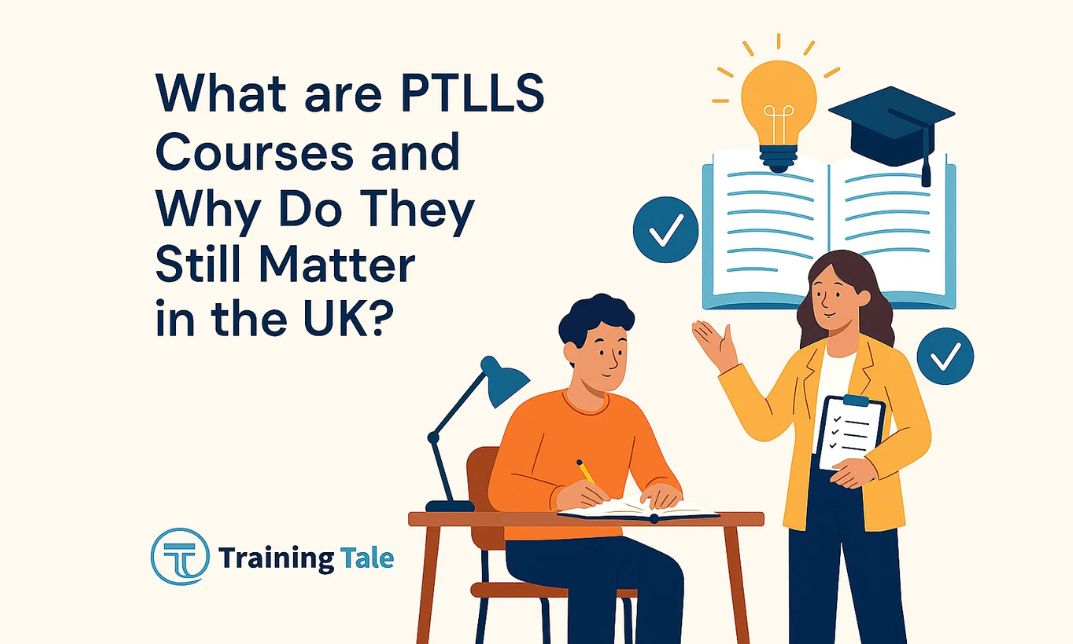No products in the basket.
Introduction:
Support work in schools and colleges refers to the many types of aid and support offered to students to help them achieve, socially, and emotionally. So, teachers, counsellors, social workers, and other professionals who help students through the obstacles of school and college life are examples of support workers.
Moreover, the strength of support work in schools and colleges resides in its capacity to handle each student’s individual needs and problems. Support staff can give focused guidance and interventions to help students overcome difficulties, build resilience, and reach their full potential.
So, this blog will look at the many types of support work available in schools and institutions. As well as the influence they may have on students. It will also teach ideas and best practices for working supportively.
This blog will go through the following topics:
- The function of support staff in schools and institutions
- Strategies for working with children who have a variety of demands
- Tips for forming strong connections with families and other professions
- Methods for measuring the impact of support work on student outcomes
What is Support Work?
The provision of aid and resources to persons or groups in need is referred to as support work. The focus of support work varies depending on the setting. it often entails offering help and direction to individuals or groups for them to better manage their own lives.
Additionally, support work in schools and educational institutions often refers to assisting kids with special needs or troublesome behaviour. Working with students or in small groups. Offering academic help, counselling, behaviour management, and other services, is one example. Special education instructors, school counsellors, social workers, and psychologists are examples of support personnel.
Working with families, teachers, and other professionals can also be part of support work. The purpose of support work is to assist students in overcoming barriers. As well as improving their abilities, and reaching their full potential.
Thus, it is vital to understand that support work is a wide phrase that can apply to any type of help, including emotional, social, and educational support.
The Function of Support Staff in Schools and Institutions:
Support personnel at schools and institutions play an important role in providing students with resources and support. They need to flourish academically. Support staff responsibilities vary based on the exact position and context, but they often include:
- Academic help: Support professionals can work with students one-on-one. As well as in small groups to give more help with coursework, homework, and test preparation. They may also assist pupils in developing study skills and organisational tactics.
- Supporting social and emotional development: Support personnel may offer counselling and mental health services to students. To assist them in dealing with stress and emotional issues. They could also help youngsters develop social skills. As well as healthy interactions with their classmates and adults.
- Giving people access to resources: Support staff may assist students in gaining access to resources. Such as tutoring, mentorship, or extracurricular activities that can aid in their learning and development.
- Coordination of services: Support personnel may collaborate with other professionals. Such as teachers, school administrators, and outside agencies. They can coordinate services and support for pupils.
- Supporting students with special needs: Support personnel may offer customised services and accommodations. Hence, students with disabilities or other special needs ensure that they have fair access to education.
- Providing guidance and advising::Support staff may provide counsel and tell to students to help them become educated. Decisions about their education and future goals, as well as help them manage the difficulties of school and college life.
The role of support staff in schools and institutions is to offer students a variety of services. It will help them thrive academically.
Strategies for Working With Children Who Have a Variety of Demands:
Working with children who have a wide range of needs can be difficult, but some ways can help:
- Understanding each child’s particular needs and problems: It is critical to take the time to understand each child’s distinct requirements and challenges. Talking with parents, teachers, and other professionals who deal with the kid. As well as seeing the youngster in various contexts, can all be part of this process.
- Setting specific and attainable objectives: Setting specific and attainable goals for each kid can help concentrate the support and treatments offered. These objectives must be explicit, quantifiable, and relevant to the child’s needs and strengths.
- Using a multi-disciplinary approach: Children with a wide range of needs may enjoy a multi-disciplinary strategy. That brings together many specialists with varying levels of skill. Thus, this can involve instructors, counsellors, social workers, and other professionals.
- Providing continuous and continuing help: Children with a range of needs may need consistent and ongoing help to progress. This might include regular check-ins, tracking progress, and making modifications as required.
- Encourage family involvement: Involving parents and carers in the child’s support and interventions may be quite useful. This might include frequent contact, information exchange, and incorporating people in the planning and decision-making process.
Tips for Forming Strong Connections With Families and Other Professions:
It is critical to establish good relationships with families and other professionals. Then it will be easy to provide effective help to children. Here are some pointers to help you form and maintain excellent relationships.
- Communication: Building trust and understanding between families, professionals, and other stakeholders requires clear, consistent, and open communication. This may entail frequent check-ins, updates, and meetings.
- Listening: Actively listening to families and other professionals is a key element of communication. This means being receptive to their thoughts, concerns, and viewpoints.
- Respect: Showing respect for the cultural origins, beliefs, and values of families and professionals can assist in creating trust and understanding.
- Collaboration: Working as a team can assist in ensuring that children receive support that is suited to their specific needs. This might include frequent meetings, decision-making as a group, and continual communication.
- Empathy: Demonstrating empathy and understanding of the issues. That family and other professionals’ experience may aid in the development of trust. As well as strengthening partnerships.
- Flexibility: Being adaptable and open to new ways can assist in ensuring. The support offered is customised to the specific requirements of each child and family.
Methods for Measuring The Impact of Support Work on Student Outcomes:
- Measuring the impact of support activities on student outcomes is critical for establishing intervention efficacy and making informed decisions about future help. Here are some approaches for assessing the effectiveness of support work.
- Outcome measurements are particular assessments of changes in student behaviour, knowledge, or abilities as a result of support work. Standardized test scores, grades, attendance, and behaviour reports are among the examples.
- Monitoring student growth over time can give information on the effectiveness of help efforts. This might entail gathering information on specific aims or objectives and comparing it to baseline data.
- Gathering input from students, families, and instructors via surveys or questionnaires can give useful insight into the impact of support activities.
- Researching the impact of help work on particular students can give comprehensive information. This might include gathering information on the student’s history. As well as help received, and outcome measurements.
- Comparing the outcomes of students who got help to those of a similar group of students. Who did not give insight into the impact of support services?
- Tracking student outcomes over time can give a more thorough picture of the impact of support efforts.
- It is crucial to remember that determining the impact of support work can be difficult owing to the many factors that might influence student outcomes. To provide a full picture of the influence of support work on student outcomes, a mix of methodologies is employed.
How Can It Help Students Reach Their Goals?

Support work may help students achieve their objectives by giving them resources and guidance. They need to overcome barriers and succeed. Here are some examples of how support work might assist students to achieve their goals:
Support professionals can assist students who are failing in areas such as reading, writing, or arithmetic. One-on-one tutoring, small group education, or specialised programmes are examples of this.
Support staff can work with kids to help them improve their conduct, social skills, and self-regulation. This might involve counselling, mentorship, and other interventions to assist kids in learning to better regulate their emotions and actions.
Support workers can act as student advocates, collaborating with families, teachers, and other professionals. It will ensure that kids receive the help and accommodations they must achieve.
Help workers can offer children the emotional and social support they must to thrive in school. This may involve counselling, mentorship, and other programmes to assist students. It will help develop healthy connections and self-esteem.
Support personnel can aid students in researching career possibilities and preparing for the workforce. This might involve offering information on education and career options.
As well as assisting students in developing the skills necessary to thrive in the profession. Support staff may collaborate with educators to establish an inclusive atmosphere. In which all children, regardless of ability or background, feel valued and respected.
The Benefits of Having Support Services Available in Schools & Colleges:
Students might enjoy having support services accessible at their schools and institutions in a variety of ways. Among these advantages are:
- Improved academic performance: Academic counselling, tutoring, and study skills programmes can help students. As well as better grasp and interaction with course material, resulting in higher grades and test scores.
- Increased retention and graduation rates: Support services can also assist students in navigating the hardships of college life. Such as stress, financial difficulties, and personal issues. This can assist them in remaining in school and graduating on time.
- Increased access to options: Support services like career counselling and mentorship can assist students in identifying and pursuing opportunities. That matches their interests and aspirations.
- Better mental and physical health: Counseling, health services, and wellness programmes may assist students in managing stress. As well as mental health concerns, and physical health problems. All of which can have an impact on their academic performance and general well-being.
Support services can also help students feel more connected to the school or college community. Which can boost their feeling of belonging and engagement.
Having support services available at schools and colleges may be a vital approach. It will assist students in their academic, personal, and professional success.
Finally, having support services accessible in schools and colleges may be an important component. It will help to foster student success. providing a variety of services that can fulfil the different requirements of students. As well as assist them to negotiate the rigours of college life.
How to Access Support Services at School & College:
Accessing support services in school and college might differ based on the institution and the service sought. But, students can take the following general procedures to gain access to support services:
- Investigate the available services: Many schools and universities have websites or brochures that detail the support services they provide as well as contact information.
- Speak with an adviser or counsellor: For students who are unsure of what services they must or where to get them. as well as advisors or counsellors are a useful beginning point. They can assist students in understanding the services available and how to get them.
- Appointment or walk-in: While many support programmes need appointments. And some may also provide walk-in hours. Students should contact the specific service to learn about their possibilities.
- Have the following paperwork on hand: Some support programmes may need paperwork from students. Such as a diagnosis or proof of financial necessity. Students should contact the relevant service to see what paperwork is needed.
- Take the initiative: Students should not be scared to seek out the help that they must. Many services are offered to all students, not only those who are having academic or personal difficulties.
- Contacting the Student Services office: Most colleges and universities have a student services office. Where students may learn about the many support services available and how to access them.
Obtaining support services at school and college may be a simple procedure. Students may need to conduct some research and interact with the appropriate individuals to locate the help they need. It’s always a good idea to communicate with school or college personnel and to make an effort to reach out to them.
The Role of Parents & Teachers in Helping Create a Positive Learning Environment:
Parents and teachers play critical roles in fostering a healthy learning environment for pupils. They can do this in a variety of ways.
Parents and teachers should collaborate. They can provide an open and supportive atmosphere in which kids may share their ideas, concerns, and questions. Behis can hold frequent parent-teacher conferences. Communicating through email or phone, or doing student-led parent-teacher conferences.
Parents and instructors should set high expectations for their children. As well as teach them the value of hard effort and perseverance in accomplishing their goals.be done his may be done by communicating academic norms and objectives. As well as offering opportunities for students to take on difficult tasks and projects.
Parents and teachers should provide children with the help and guidance they need to succeed. This can involve both academic help, such as tutoring or study skills programmes, and emotional help, such as therapy or mentorship.
Parents and teachers should collaborate to foster a positive and inclusive culture in their school or classroom. This might involve supporting an inclusive curriculum and developing respect for diversity. As well as addressing and avoiding bullying and prejudice.
To foster a feeling of community and involvement, parents and teachers should take part in school activities. Such as volunteering, attending events, and joining parent-teacher associations.
Parents, instructors, and students should work together to achieve a similar aim. This may dfacilitateparent-teacher-student engagement through programmes. Such as project-based learning, student-led conferences, and others.
Parents and teachers should foster an environment of trust and mutual respect in which pupils feel safe and appreciated. This is possible via clear communication, openness, and attentive listening.
Parents and instructors play an important part in fostering a healthy learning environment for their children. They may assist kids to meet their full potential by collaborating to support them intellectually.
Support Programs That Make a Difference to Student Success:
A variety of help services can make a major difference in student performance. Here are a few examples: Tutoring and academic help programmes can assist students in improving their knowledge. As well as course material and improving their academic performance. These programmes can be delivered one-on-one or in small groups. It can include homework help, study techniques training, and exam preparation.
Students can enjoy the direction and support of a trustworthy adult through mentoring programmes. Mentors can provide guidance, assist students in navigating academic and personal problems, and act as good role models.
Counselling and mental health services can assist students in dealing with stress. As well as anxiety, and other mental health difficulties. Individual, group, and family counselling, as well as workshops and support groups, are examples of these services.
College and career preparedness programmes can assist students in planning for and succeeding in postsecondary education and the workforce. College visits, job exploration events, and financial aid help are examples of such programmes.
Outside of the typical school day, extended learning activities can provide students with extra learning experiences. After-school programmes, summer camps, and internships are examples of such programmes.
Special education services to assist kids with disabilities in academic and social success. Individualized education plans, adjustments and adaptations, and customised instruction are examples of these services.
English as a second language (ESL) programmes assist non-native speakers in improving their language abilities. which can be important for academic achievement. Language classes, talk groups, and individual tutoring are examples of such programmes.
Support Work in Schools and Cothe lleges in the UK:
In the United Kingdom, support work in schools and colleges can involve a wide range of programmes. As well as services meant to assist students to achieve academically. Here are some examples of help work in UK schools and colleges:
- More Learning Support (ALS): This is a service offered by schools and institutions to students. Who has special educational needs (SEN) or impairments? ALS can entail academic help, as well as communication, mobility, and other requirements.
- Learning Mentors: These are experts who work one-on-one with students to assist them in overcoming whatever obstacles. They may be experiencing, such as social or emotional issues, behavioural issues, or learning difficulties.
- Pastoral Support: Schools and colleges provide this service to help students with their personal and social development. Including emotional and mental health
- Special Educational Needs Coordinator (SENCO): A competent teacher who is in charge of arranging support for students with special educational needs and disabilities at school or college.
- Student Help Services: This category includes a variety of services including counselling. As well as mental health support, and career counselling.
- Extended Services: Extended Services are activities and services offered outside of the standard school day. Such as after-school clubs, sports teams, and summer schools.
- Nurture groups: These groups strive to provide a small, supportive learning environment for kids. Who has social, emotional, behavioural, or mental health concerns?
- Inclusion Help: This is a programme that provides more support, resources, and direction to kids who are in danger of being expelled from school.
Support work in UK schools and colleges is intended to assist students in overcoming obstacles and reaching their full potential. the
SENCO in UK:
In the United Kingdom, a Special Educational Needs Coordinator (SENCO) is a licenced teacher. Who is in charge of organising support for children with special educational needs (SEN) and disabilities at a school or institution? The SENCO’s responsibilities include the following:
- In identifying and evaluating kids with special needs Individual Education Plans (IEPs) for children with special needs are created and reviewed.
- Coordination of support for pupils with special needs, including supplementary help from outside agencies
- advising and assisting teachers and other personnel in meeting the needs of kids with special needs
- Monitoring the development of pupils with special needs and making necessary modifications to their help
- Liaison with SEN students’ parents and carers ensuring that the rules and procedures of the school or institution address the needs of pupils with SEN
- To offer essential help to kids with SEN, SENCOs collaborate with other specialists. Such as educational psychologists, speech and language therapists, and occupational therapists. They also play an important role in ensuring that the school or college is meeting its legal obligations under the Children and Families Act (2014). As well as the Special Educational Needs and Disability Regulations (2014). which outline the rights and responsibilities of children and young people with SEN and disabilities, as well as those of schools and colleges.
The SENCO’s work is critical in ensuring that children with SEN and disabilities receive the help they must to thrive in school and college.
Summary:
The many programmes and services put in place to assist students to achieve academically. Academic help, counselling, and mentorship are examples of services that can be provided. In the United Kingdom, support work in schools and colleges can include More Learning Support (ALS) Assistance to assist students with special educational needs.
As well as disabilities, Learninentors assist students in overcoming difficulties. Also, Pastoral Support to assist students in personal and social development. As well as Special Educational Needs Coordinator (SENCO).
Who is in charge of organising help for kids with special educational needs, Student Help Services? Such as counselling and mental health support. As well as Extended Services, such as after-school organisations, sports teams, and summer schools, are available. Nurture groups are meant to help kids who have social, emotional, behavioural, or mental health concerns.
While Inclusion Support is designed to help students who are in danger of being expelled from school. These programmes are designed to assist students in overcoming any obstacles. They may be experiencing and reaching the largest potential.
Did we miss anything? We want to make this blog a comprehensive list of problems and solutions with traffic sources. If you know of something we missed, let us know with a comment below; we appreciate the input.
FAQs
What is the objective of school and college support work?
Support work in schools and colleges is intended to assist students in achieving academic, social, and emotional success. Academic help, counselling, and mentorship are examples of services that can be provided.
Who is eligible for school and college help services?
Support services are accessible to all students at schools and colleges. But certain programmes may be aimed towards certain groups. Such as students with special educational needs, impairments, or students in danger of expulsion.
How do students get help at their schools and colleges?
Access to support services in schools and colleges varies by institution. In general, children can get help from a counsellor, teacher, or another member of the school staff. Some schools may also have a dedicated support office or website. Where students may learn more about the services that are available and how to access them.
What role do parents and teachers have in school and college support work?
Parents and instructors play a key role in school and college support work by recognising kids. Who may use help and collaborate with school officials to give that help? They may also give students help and direction, such as through mentorship or counselling.
Are school and college support services free?
The cost of support services in schools and colleges varies according to the institution and the type of service given. Some services may be offered for free, while others may be charged.
Are school and college counselling services private?
In general, support services in schools and colleges are confidential, This means that information supplied by students will not be shared with others without the student’s permission. There are certain exceptions. Such as if the student is at imminent risk of injuring himself or others. if the school or college is obligated by law to submit particular information.
How can school and college support services assist students to thrive academically?
Support services at schools and colleges can assist students in academic success. Giving extra help with academic work, such as tutoring or study techniques courses. They may also assist pupils in overcoming any obstacles. They may be experiencing, such as social or emotional challenges. As well as behavioural issues, or learning difficulties.




